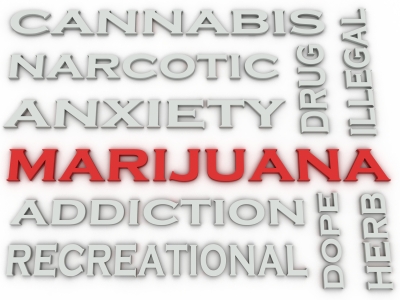Teens Use Marijuana
Teens smoke pot. While sad, it’s true. By senior year in high school one out of three teens will have used marijuana according to drugabuse.gov. While not every teenager who tries marijuana ends up using it regularly, there is concern for those that do.

Why Some People Think Smoking Marijuana is OK
I understand that I should tread lightly here because some of you reading this smoke weed yourself. You probably see it as something harmless that helps you relax, and you might even use it to help you fall asleep. You believe people who don’t use just don’t understand. To you, it’s just a small side habit that doesn’t cost much money and doesn’t really alter how you think or feel. You still have your job, raise your kids, keep your house clean, and function just fine. So, what’s the big deal?
The Issues with Marijuana
If you smoke on a regular basis, I can almost guarantee your teen knows it. They will view it as permission to use it themselves, and the problems that come with your teen’s use of marijuana are numerous
1. Your Teen is Being Exposed to More Than Marijuana
Your teen is hanging around the other middle school and high school aged children who smoke. Some of these kids use harder drugs than marijuana, and they will bring them around your teen. There will be opportunities for your adolescent to abuse things you’d never be okay with them trying. Using marijuana opens the door to these other drugs for your teen.
2. Marijuana Is Creating a Reputation for Your Teen
Your teen is developing a reputation. Kids talk to their parents, which leads to other parents, teachers, school administrators, and coaches all knowing your teenager uses pot.
3. It’s Addictive
A lot of adults don’t believe this is true. However, the strength of THC (what makes it addictive) in pot has been genetically engineered to be much stronger than it once was. THC concentrations can now be over 40%. THC is incredibly addictive, both physically and psychologically.
4. It Reduces Motivation
When teens smoke marijuana, you will see their grades drop, their rooms messier, and less excitement about life in general. This is especially true for teens who use multiple times per day.
5. Marijuana is Expensive for Teens
teens don’t make much money. Those who smoke marijuana on a regular basis usually end up spending between half and all of their income on it. This means your child is using their earnings or allowance to buy drugs.
6. It’s Unhealthy
Many teens think marijuana is natural, but it isn’t. Just because it’s a plant doesn’t mean it’s healthy. Most marijuana is grown using pesticides, genetic modification, and is unregulated. You wouldn’t buy food like that, would you? In addition to that, when smoked, your teenager is repeatedly inhaling unfiltered smoke or vape residue into their lungs. Yikes!
7. It Can Cause Cyclic Vomiting (CHS)
What is cyclic vomiting? If you smoke pot frequently enough for a long period of time, you can get CHS, a disease caused by long-term use of marijuana. People with CHS vomit frequently and have intense abdominal pain. The only way to get rid of it is to stop using marijuana completely, even in small amounts. CHS causes intense discomfort, so it’s better to avoid it completely (don’t use marijuana).
Dealing with Marijuana
All my clients know people who smoke, and many of them use marijuana themselves. I always encourage them to stop, and those who agree to do so are surprised to find quitting extremely difficult. Many tell me, “I thought I could stop whenever I felt like, but I can’t. I didn’t realize pot was addictive.” For those that don’t use, it’s frustrating that so many of their friends do. Teens need help coping with the reality that many people use marijuana, and this number will only increase when they enter college. However, that doesn’t mean they should use it too.
Helping teens grow and families improve connection,
Lauren Goodman, MS, MFT



